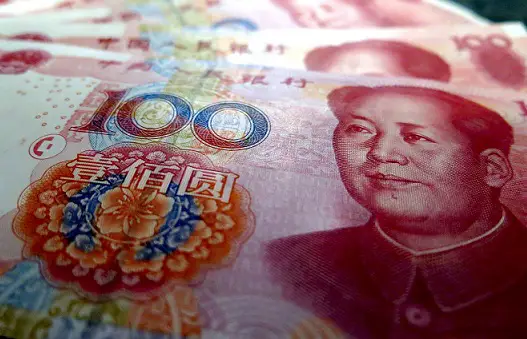On Friday, Reuters reported that as borrowing costs in the West are skyrocketing, global businesses are making record-sized profits through investments in yuan-denominated bonds, as they are also borrowing at low rates from Chinese lenders.
The news agency reported that record amounts of investment cash are being harvested by international companies and banks through the use of Chinese “panda” and “dim sum” bonds denominated in yuan.
Fiona Lim, senior FX strategist at Maybank said, “While the fundamental story is not compelling for Chinese investors looking for growth, the depreciation of the yuan as well as the rate cuts result in a much cheaper cost of borrowing.”
As China’s borrowing market has surged in popularity, it has turned the yuan into the world’s second-biggest trade-funding currency, beating out the euro. Reuter’s noted that it is reflective of Beijing’s drive to see the yuan’s share in global funding boosted.
The report noted that in October, the National Bank of Canada sold a three-year panda bond at a coupon of 3.2% for 1 billion yuan ($138.6 million) at a time when domestic interest rates were sitting at 4.5%.
The outlet noted that the People’s Bank of China (PBOC) has allowed the broader use of the yuan outside the country in an effort to encourage banks to lend more to international companies.
In a report last month, the PBOC said, “Panda bonds are steadily promoting the renminbi’s function as a funding currency.”
In September, the Chinese yuan made record gains in its quest to advance as a means of international payments, with its share in international settlements surging from 3.9% at the beginning of the year to 5.8%, according to data from SWIFT, which showed it had outperformed the euro for the first time.
The increasing prominence of the yuan in cross-border settlements shows the desire of Beijing to move away from the US dollar, as well as the effects of its promotional efforts to see the yuan used an a new international currency.

